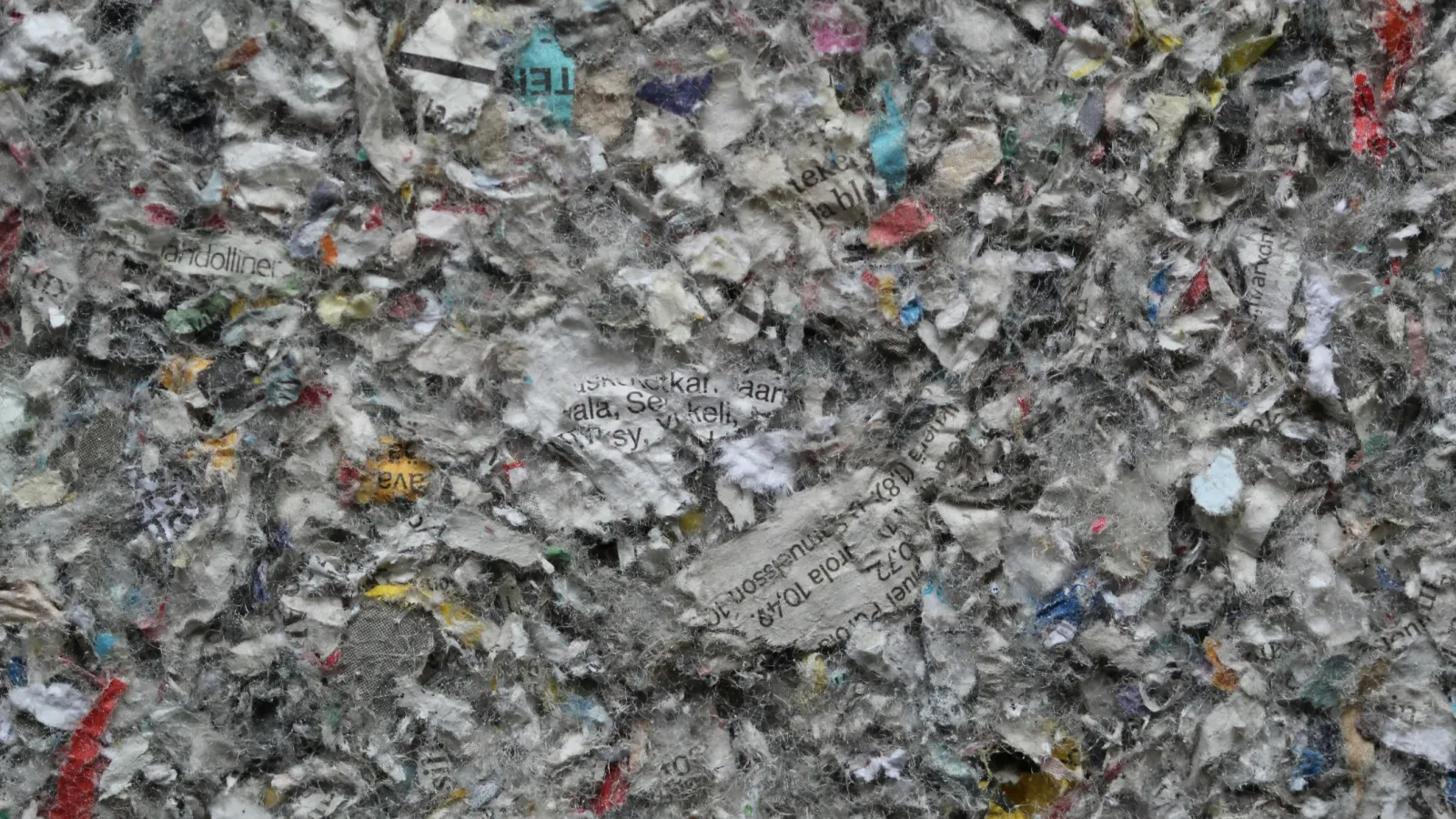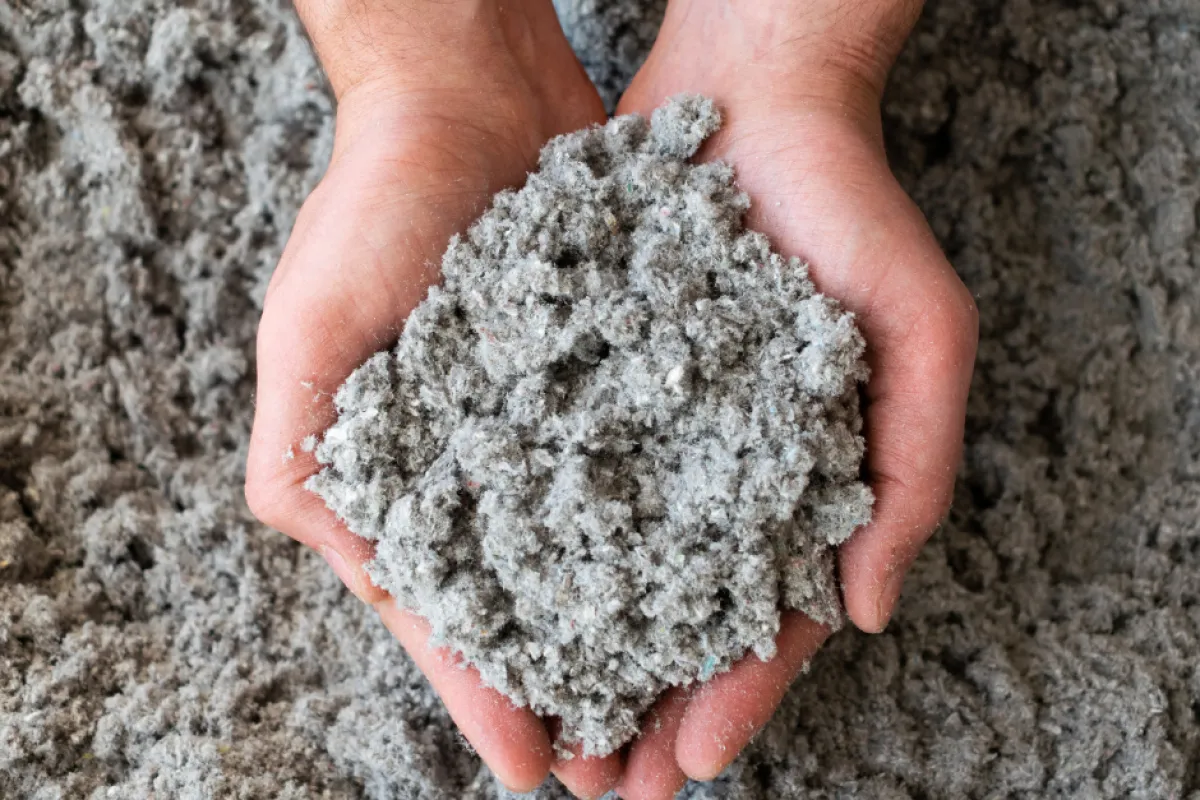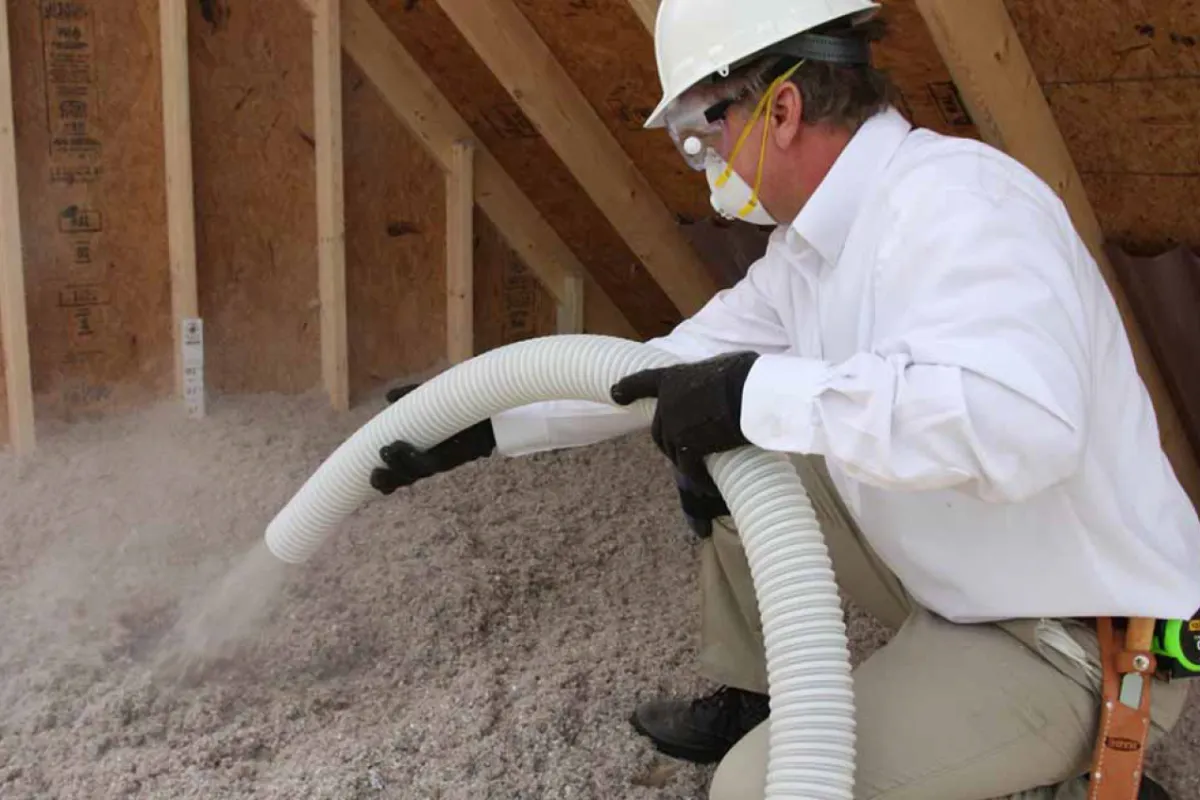
T·A·P® Pest Control Insulation
Energy-efficient insulation with the added value of pest control
All About T·A·P Insulation
Thermal Acoustical Pest Control Insulation (T·A·P) is made primarily from recycled newspaper fibers. These fibers undergo treatment with a specially formulated borate solution to repel pests. The final product is a safe, environmentally sensitive insulation solution that effectively manages pests while maintaining optimal insulation performance.

T·A·P Into the Benefits
Multiple Benefits of T·A·P Insulation
- Thermal - T·A·P offers cost savings by effectively regulating your home's temperature, keeping it warmer in the winter and cooler in the summer, thereby reducing energy bills.
- Acoustical - T·A·P blown-in installation forms a dense, soft blanket in your attic, minimizing external noise and creating a quieter, more serene indoor environment.
- Pest Control - T·A·P not only outperforms in insulation effectiveness but also provides an added advantage: a continuous barrier against pests. With a pesticide-grade borate solution, T·A·P effectively eliminates pests such as ants, cockroaches, silverfish, and termites, thus safeguarding your home from infestations.

Why Use T·A·P?
PestNow Has You Covered
Replacing attic insulation is likely missing from most homeowner's to-do lists. However, after a wildlife issue in an attic, cleaning and restoring the space includes new insulation. T·A·P is an excellent option in insulation.
T·A·P Pest Control Insulation is not just about managing pests. It also enhances the comfort of living spaces by minimizing the energy required for heating and cooling. This innovative solution combines energy-efficient blown-in insulation with the added benefit of pest management, ensuring both pest-free environments and reduced heating and cooling expenses.
All Your T·A·P Insulation Questions Answered
As a T·A·P Provider, we have the answers to some of the most frequently questions.
What is T·A·P Insulation?
T·A·P is an innovative home insulation product crafted from recycled newspaper fibers infused with borate pesticide. This unique blend is then blown into attics, serving as an additional layer atop existing insulation.
Is T·A·P a fire hazard?
No!
T·A·P contains a fire retardant that prevents the product from burning. It meets and is tested in accordance with strict federal fire safety standards. When a flame is introduced to the product, it forms a charred surface barrier that actually limits the spread of fire.
What is T·A·P made of?
T·A·P is made from select recycled paper and a pesticide grade 100% pure boric acid that controls insects. Boric acid is a low-toxicity mineral salt mined from the earth commonly used in swimming pools, as a laundry detergent, anti-fungal creams, and cosmetics - it's nature's pesticide! T·A·P is registered with the U.S. Environmental Protection Agency and is acceptable for use around humans and pets.
How does T·A·P kill pests?
The boric acid in the insulation gets on the bodies of self-grooming insects such as ants, cockroaches, and silverfish when they crawl through the insulation. They ingest the borates when grooming themselves.
Unlike humans and pets (who have livers), these insects cannot filter the borates out of their systems. The borates build up in the insect's gut, causing starvation and resulting in a permanent pest control solution.
How is it installed?
Before T·A·P can be installed in your home, your attic must be inspected. This inspection will give PestNow the information we need for the installation, such as the number of bags needed, the location of any heat sources that may need to be blocked off, insight into the attic's ventilation, and the condition of the existing insulation.
